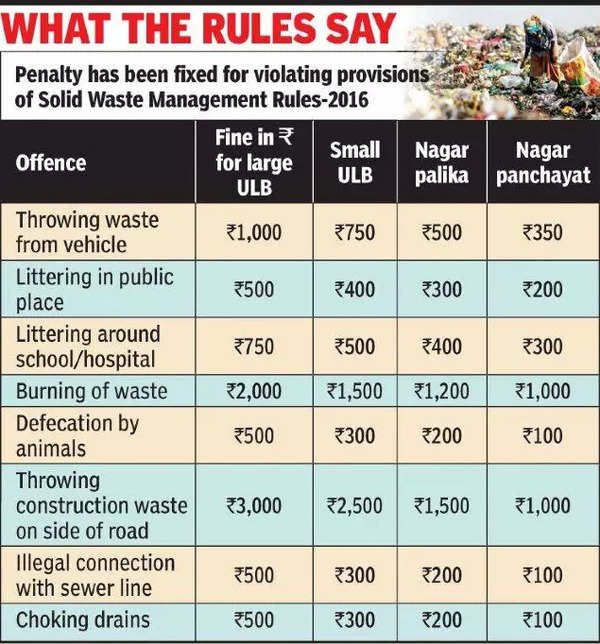Context
on February 24, 2025, the Supreme Court of India underscored the necessity of waste segregation at the source as a crucial environmental protection measure. Stressing compliance with the 2016 Solid Waste Management (SWM) Rules, the Court highlighted its significance in pollution control, particularly in the National Capital Region (NCR).
What the Court Said
- The Court observed that non-compliance with the SWM Rules has aggravated pollution in cities. It emphasized that proper segregation of waste into dry, wet, and hazardous categories is essential to minimizing environmental damage. The absence of segregation hampers waste-to-energy projects, as these plants rely on properly sorted waste for efficient processing. Mixed waste disposal results in the burning of non-segregated materials, leading to the emission of harmful pollutants.
- The Supreme Court directed NCR states—Delhi, Haryana, Uttar Pradesh, and Rajasthan—to submit compliance reports by March 2025. These reports must outline progress in waste segregation, provide actionable timelines, identify implementing agencies, and highlight best practices in waste management. The Court stressed that failure to adhere to the SWM Rules exacerbates pollution.
- Additionally, the Court mandated the Central Pollution Control Board to assess the environmental impact of waste-to-energy plants. This initiative aligns with India's environmental sustainability goals, including the Swachh Bharat Abhiyan and the development of greener urban spaces.
About Solid Waste Management Rules, 2016
The Union Ministry of Environment, Forests and Climate Change (MoEF&CC) introduced the Solid Waste Management Rules in 2016, replacing the Municipal Solid Wastes (Management and Handling) Rules, 2000.
These updated rules aim to enhance waste management practices across India, extending their applicability to urban agglomerations, census towns, industrial townships, Indian Railways areas, airports, ports, defence establishments, and more.
Waste Segregation at Source
The core focus of the rules is source segregation, where waste must be categorized into three types:
1. Wet (biodegradable waste)
2. Dry (plastic, paper, metal, etc.)
3. Domestic hazardous waste (diapers, cleaning agent containers, etc.)
Generators must hand over segregated waste to authorized collectors or local bodies.
Waste Management in Commercial and Institutional Sectors
Businesses, hotels, restaurants, and event organizers are required to segregate waste and collaborate with local bodies to ensure proper food waste management through composting or bio-methanation.
Processing of Biodegradable Waste
Biodegradable waste must be processed through composting or bio-methanation, preferably on-site. Residual waste should be handed over to local authorities or waste collectors.
Special Provisions
1. Industrial and special zones must allocate space for recycling and recovery facilities.
2. Producers must collect back package waste generated by their products.
3. Construction and demolition waste must be managed separately as per specific rules.
4. Hilly areas must establish transfer stations and regional landfills for waste disposal.
The rules aim to ensure sustainable waste management by promoting segregation, recycling, and reuse, thereby reducing environmental impact.

Conclusion
The Supreme Court’s ruling underscores the pivotal role of waste segregation in pollution management and environmental sustainability. Ensuring NCR states’ compliance with the SWM Rules is vital for addressing waste management challenges and advancing India’s sustainability objectives.







